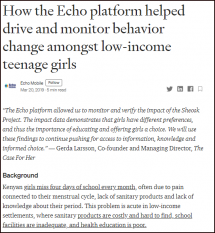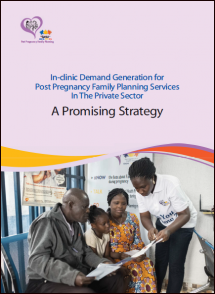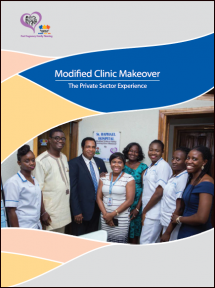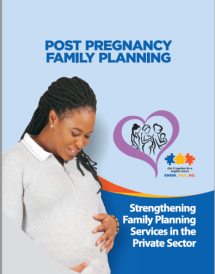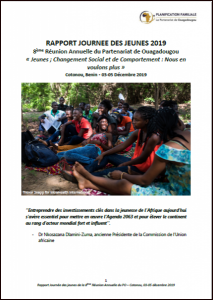How the Echo Platform Helped Drive and Monitor Behavior Change amongst Low-income Teenage Girls
Kenyan girls miss four days of school every month, often due to pain connected to their menstrual cycle, lack of sanitary products and lack of knowledge about their period. This problem is acute in low-income settlements, where sanitary products are costly and hard to find, school facilities are inadequate, and health education is poor.
In 2018, The Case For Her (TCFH) partnered with Echo Mobile to pilot new ways of addressing these access and awareness problems. The “Sheosk” pilot included a training program for girls at low-income schools and the distribution of sanitary products to kiosks in the surrounding areas.
To verify behavior change, assess girls’ ability to pay, and monitor their product choices, TCFH turned to the Echo platform’s powerful SMS features.
The pilot data collected by TCFH through the Echo platform suggests that consumer education and access can have a social impact, and that this impact can be monitored and verified via low-cost, high-access channels like SMS.
Source: ECHO Mobile
Date of Publication: December 6, 2020
SIMILIAR RESOURCES
Tools
Examples
- The Echo Platform
- Agencies Need to Get Savvy about Low-cost Program Evaluation
- Informing Social and Behavior Change Programs using Social Listening and Social Monitoring
- Community-Led Monitoring
- Lessons for Health Program Monitoring and Evaluation in a Low Resource Setting
- Are Messaging Apps and Emoji-Driven M&E a Game-Changing Innovation?
- Budget Friendly M&E: Five Survival Tips for Reporting in Tough Economic Times
- Evaluation in a Low-Resource Setting: Strategies for Success
- Using Routinely Collected Data for Monitoring and Evaluating Social and Behavior Change Programs
- Evaluation on a Shoestring Budget

